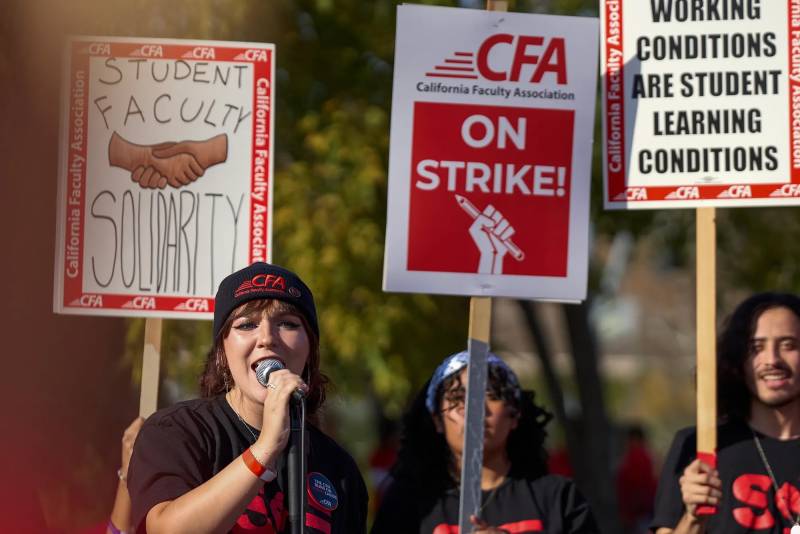The faculty union opposed those tuition hikes, arguing instead that Cal State has enough in reserves (PDF) to afford the raises the union seeks and to spend more money on students without increasing what they’re charged. Cal State has pushed back on that analysis, noting that it needs to build its reserves so it has the equivalent of at least three months of its operating budget as cash-on-hand in case of economic emergencies. Currently, it only has about a month’s worth of funds.
Monday was supposed to be the start of a week of bargaining between the faculty union and Cal State leadership to come to a deal and avoid the strike. But that ended poorly, union leadership said in a statement on Wednesday. “After 20 minutes, the CSU management bargaining team threatened systemwide layoffs, walked out of bargaining, canceled all remaining negotiations, then imposed a last, best and final offer on CFA members,” wrote Charles Toombs, faculty president and a professor at San Diego State.
The breakdown in negotiations was consistent with the tenor of relations between the two camps, which has been marked by frustration and a lack of trust.
Professors at Cal State earn between $91,000 and $122,000, full-time lecturers make $71,000 on average (PDF) and the 23 campus presidents have an average base salary of about $417,000, according to 2022 data compiled by CalMatters. Most lecturers are part-time and earned the equivalent of $64,000 on average in 2022.
Faculty groups have inveighed against the higher jumps in salaries that top Cal State campus and system officials have been awarded in recent years. A CalMatters analysis last month showed that while lecturers saw raises of 22% on average since 2007, presidents in that time saw base pay raises of 43% on average. The system’s new chancellor earns just shy of $800,000 in base pay and about $1 million when adding housing, auto and other perks.
But even if faculty and the system resolve the current labor dispute, a wider set of contract items will be up for negotiation this June.
